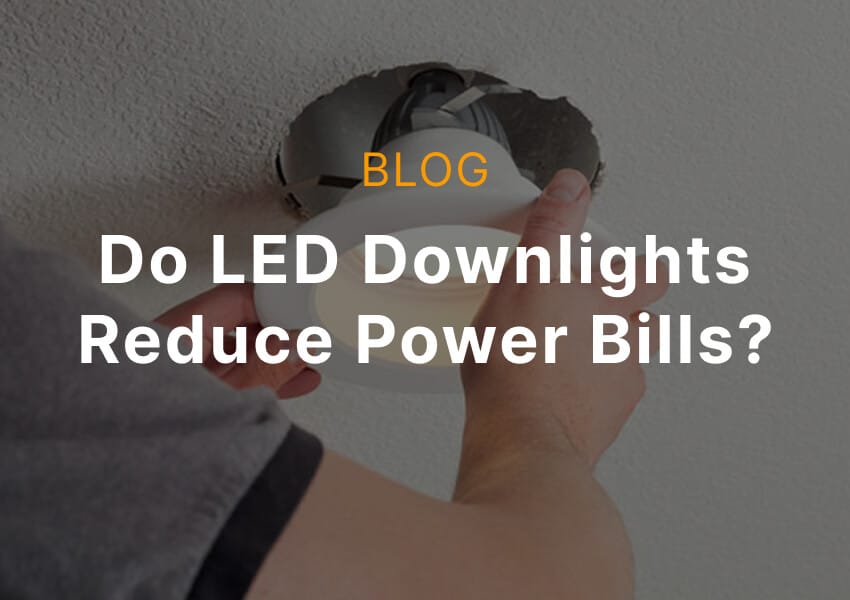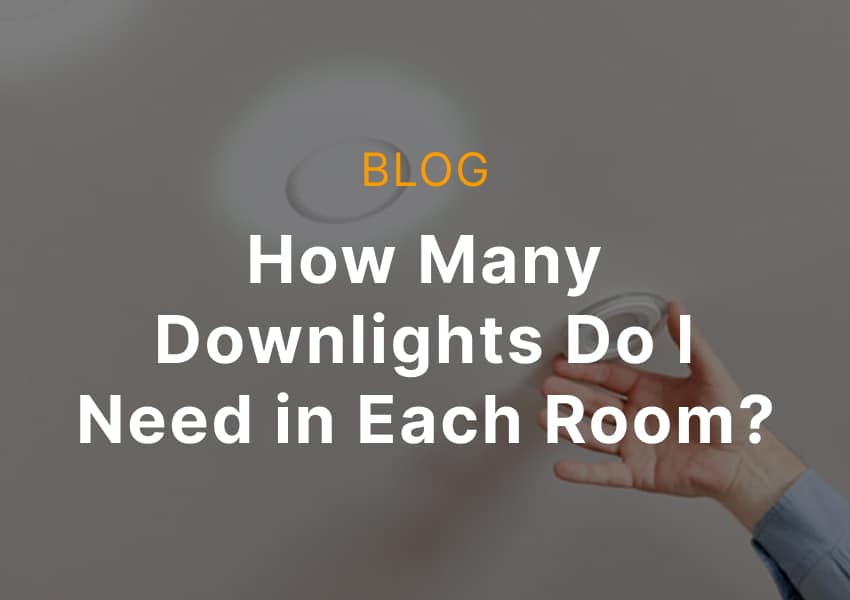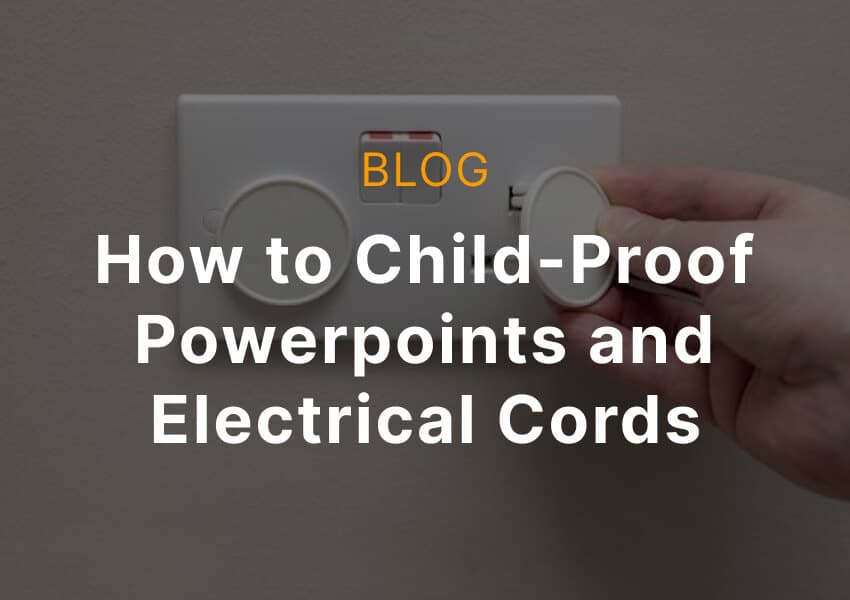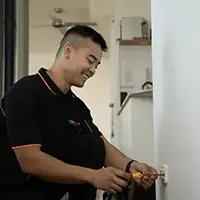Rising energy costs have many Australian homeowners rethinking their lighting choices. One question comes up often: do LED downlights reduce power bills? The short answer is yes, and the savings can be significant over time. Unlike old halogen globes that waste energy as heat, LEDs use advanced semiconductor technology to produce more light with less power. They also last much longer, which means fewer replacements and less landfill waste.
With most households relying on dozens of ceiling fittings, switching to LED downlights installation can noticeably lower running costs each quarter. Understanding how these lights work and why they are more efficient helps you make smarter decisions about upgrades that save energy, cut costs, and brighten your home more sustainably.
Why Lighting Affects Your Power Bills in Australia
Lighting is one of the simplest yet most overlooked factors influencing household energy costs in Australia. Every light you switch on adds to your overall electricity usage, and older bulbs can quietly drive those bills higher than you might expect. Understanding where that power goes helps you see why small upgrades can make a big difference.
Lighting energy usage
In many Australian homes, lighting can account for about ten percent of total electricity consumption. Halogen or incandescent lights convert most of that power into heat rather than light, wasting valuable energy. By comparison, modern downlights distribute light more evenly, reducing the number of fittings needed to achieve the same brightness.
Older halogen inefficiency
Halogen bulbs are notoriously inefficient because they rely on heat to create light. The more heat produced, the more power consumed, and that directly affects your quarterly bill. Their short lifespan also means more frequent replacements, which increases both cost and waste. This inefficiency is one of the main reasons homeowners are switching from halogen downlights to LED fittings.
New LED technology
LEDs use diodes that emit light when electricity passes through them, converting energy far more effectively. This design eliminates most of the wasted heat, creating a cooler and safer environment while using less electricity. The result is a system that delivers the same level of brightness using a fraction of the power. Because of this LED downlight energy efficiency, Australians are now seeing clear reductions in their lighting expenses and often call on electrical services to enjoy a more sustainable home.
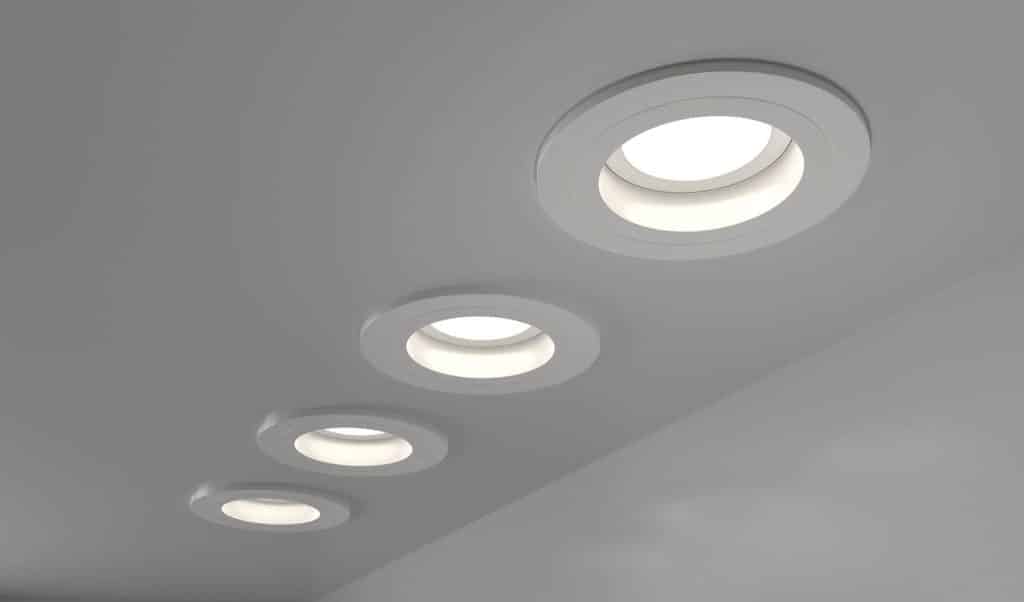
How LED Downlights Reduce Power Bills Over Time
The savings from LED lighting come from more than just lower power use. The design, components, and lifespan of modern LEDs all contribute to long-term cost reductions and improved performance. Understanding how these features work together shows why so many Australians are choosing to upgrade their home lighting systems.
Lower wattage use
One of the main reasons LED downlights reduce power bills is their minimal energy draw. An average halogen globe may use 50 watts, while an LED can produce the same brightness using around 10 watts. This huge difference in halogen vs LED downlights power consumption means you can light multiple rooms for the cost of running one older bulb. The result is consistent savings that add up every month.
Less heat output
Unlike halogens, LEDs remain cool when operating, which improves safety and reduces the strain on air-conditioning systems. Cooler fittings help maintain indoor temperatures, particularly during summer, preventing unnecessary energy waste. Because of this design, LEDs operate more efficiently and have fewer risks of overheating or insulation damage.
Longevity and reliability
High-quality LEDs last up to twenty-five times longer than traditional bulbs. The extended lifespan means fewer replacements, which lowers both material costs and labour expenses. When considering LED downlights replacement cost Australia, the total investment pays for itself through reduced maintenance and long-term energy efficiency. Over time, households notice smaller bills, fewer disruptions, and lighting that performs reliably for years.
Comparing LED and Halogen Lighting Systems
Many homeowners still wonder whether switching to LEDs is worth the effort. Comparing the two systems side by side shows why LEDs deliver superior value. By looking at performance, cost, and lifespan, it becomes clear how efficient lighting can transform everyday energy use.
LED downlights cost vs halogen
While LED fittings can cost a little more upfront, their efficiency and durability make them the more affordable option in the long run. Halogen bulbs burn out quickly and use far more power, meaning you spend more on replacements and energy. Over a few years, the difference in cost balances out in favour of LEDs through substantial savings on electricity and maintenance.
Switching from halogen downlights to LED
Upgrading is straightforward when handled by licensed electricians. The process usually involves removing the old fittings, checking insulation clearance, and installing new LED units that suit your ceiling type. The improved design provides better light distribution, lower running costs, and a safer home. For many Australians, this change has become one of the simplest ways to reduce household energy use.
LED lighting savings Australia
Across Australia, government programs and rebates encourage residents to install energy-efficient lighting. Many households report noticeable reductions in quarterly bills within months of upgrading. The cumulative LED lighting savings Australia demonstrate that small steps in efficiency lead to significant results, particularly as energy prices continue to rise nationwide.

How Much Do LED Downlights Save in Real Homes?
For most households, the real question is not whether LEDs are efficient but how much they actually save. The numbers speak for themselves. Replacing outdated bulbs with modern downlights is one of the most effective ways to reduce long-term energy use without sacrificing brightness or comfort.
How much do LED downlights save
On average, LEDs consume around 75 percent less energy than halogen globes. If you replace ten 50-watt halogens with 10-watt LEDs, your lighting power use could drop from 500 watts to just 100 watts. That simple change demonstrates how much do LED downlights save over a year. Depending on your tariff and usage, this can reduce annual lighting costs by hundreds of dollars.
LED downlights electricity bill savings
Lower energy consumption translates directly to financial relief. Households that install efficient lighting typically see a 70 to 80 percent reduction in lighting-related costs. The results may vary with the size of your home and hours of use, but most families quickly notice the difference in their quarterly bills. These LED downlights electricity bill savings accumulate month after month, leading to lasting financial benefits.
LED downlights save electricity
Because LED downlights save electricity, they also reduce strain on the broader energy grid. This helps limit greenhouse gas emissions and contributes to national sustainability goals. Making the switch benefits both your budget and the environment, proving that energy efficiency and financial savings can go hand in hand.
Factors That Influence LED Downlight Energy Efficiency
Even though LEDs are known for their efficiency, the results can vary depending on the quality of the fittings, installation, and how you use them. Understanding these factors ensures you get the most value from your investment in modern lighting.
LED downlight energy efficiency
Not all LEDs are created equal. The overall LED downlight energy efficiency depends on lumens per watt, colour temperature, and driver quality. A well-designed LED converts more electricity into light rather than heat. Choosing products that meet Australian energy standards guarantees stable performance and consistent brightness over time.
Best LED downlights for energy savings
Investing in the best LED downlights for energy savings helps maximise both comfort and cost reduction. Look for trusted brands with Australian certification and solid warranty support. High-quality fittings maintain brightness longer and provide better colour rendering, creating an inviting atmosphere while using minimal power. Dimmable models can further improve savings by adjusting light output to suit your needs.
Installation quality matters
Even the best fittings cannot perform efficiently if installed incorrectly. Poor wiring or unsuitable placement can reduce airflow and shorten lifespan. Using a licensed residential electrician ensures proper spacing, secure connections, and compliance with AS/NZS 3000 safety standards. Professional installation also preserves your product warranty and guarantees consistent light levels across every room. When completed correctly, LEDs continue to save power safely and effectively for years.
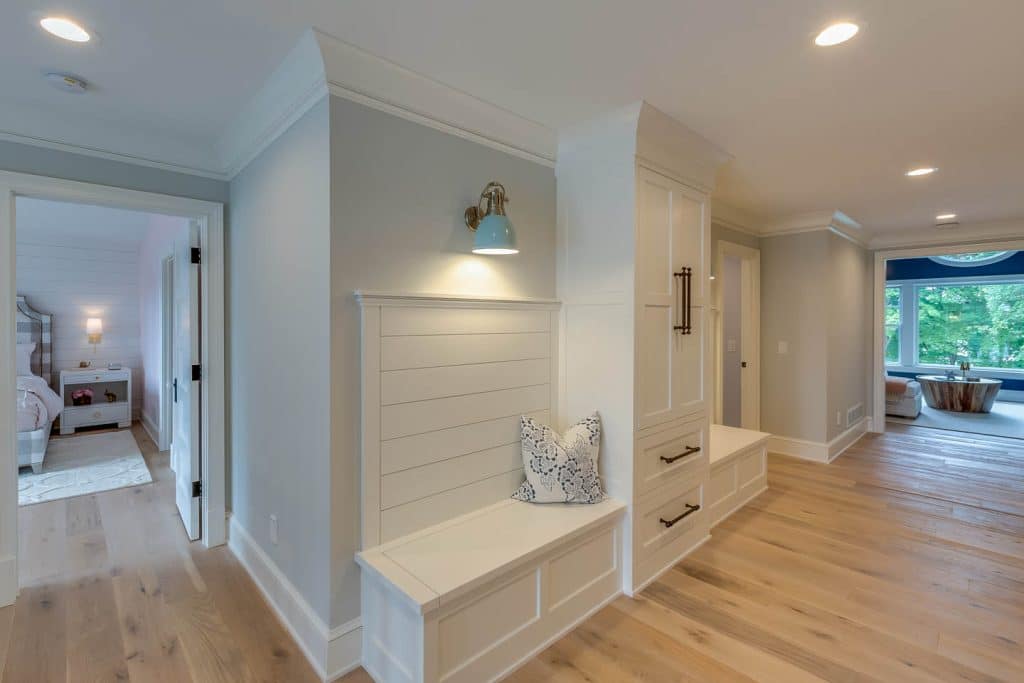
When to Call a Licensed Electrician for LED Downlight Installation
Installing new lighting might seem simple, but professional expertise ensures safety and compliance with Australian standards. A licensed electrician can help you choose the right fittings, verify wiring conditions, and guarantee that your upgrade delivers the best results without risks or hidden costs.
Electrical safety standards
Working with electricity is never a do-it-yourself job. Licensed electricians follow AS/NZS 3000 regulations to ensure each light is installed safely and efficiently. This protects your property from electrical faults, fire risks, and warranty issues. Professional installation also provides peace of mind that every connection is secure and compliant.
Upgrading old fixtures
Old halogen fittings often have brittle wiring or damaged insulation. Replacing them with LEDs is the perfect time for an expert to inspect circuits and confirm that existing transformers are compatible. Proper testing helps avoid flickering lights, short circuits, or overloading issues that could increase energy consumption instead of reducing it.
Maximising efficiency
A professional can design your lighting layout for even coverage and optimal energy performance. Correct spacing, dimmer compatibility, and quality wiring ensure each fitting operates at peak efficiency. Calling an experienced electrician guarantees that your LED upgrade delivers lasting savings, improved comfort, and dependable light throughout your home.
Conclusion: Smarter Lighting for Lower Power Bills
The evidence is clear: LED downlights reduce power bills while offering superior performance and longer life. They use less energy, stay cooler, and require fewer replacements, all of which contribute to measurable savings. Upgrading your lighting also supports sustainability and safety throughout your home. With efficient design and expert installation, LED downlights provide a simple and lasting solution for reducing costs and improving comfort.
Call Powerhub Electrical for Expert LED Downlight Installation in Epping & Parramatta
Ready to lower your energy costs and brighten your home safely? The licensed team at Powerhub Electrical specialises in LED downlight upgrades that save money and improve efficiency. We provide same-day service, 24/7 emergency support, and $50 off your first booking. Serving Epping, Parramatta, and nearby suburbs, our electricians deliver reliable, long-lasting results every time. Call 0400 332 331 today to schedule your LED lighting installation and start saving on your next power bill.

